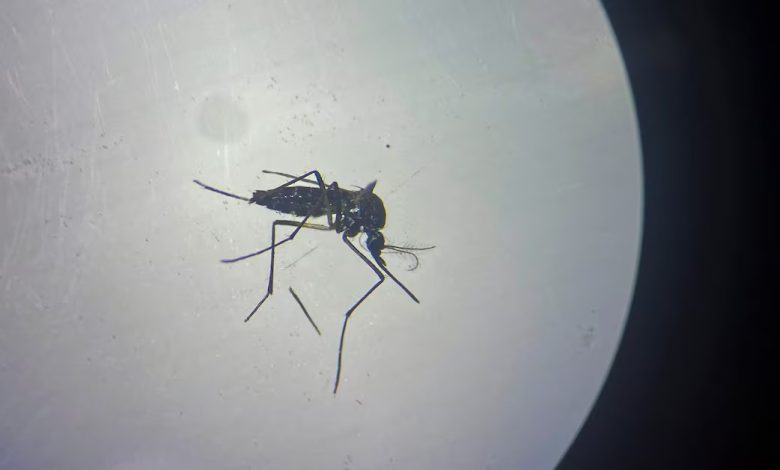Spanish lab sterilises mosquitoes as climate change fuels spread of dengue fever

Aug. 1, NAQUERA, Spain (Reuters) – In order to combat dengue fever and other illnesses, a Spanish laboratory is cultivating and sterilising thousands of tiger mosquitoes as climate change encourages the invasive species to spread throughout Europe.
The Biological Pest Control Centre in Valencia, supported by the regional government, uses an electron accelerator to sterilise and release approximately 45,000 male mosquitoes each week. The purpose of this is to help the males, whose bites can spread diseases to people, mate with females and ultimately lower the overall mosquito population.
“With climate change, this species is becoming more widespread… Its inhabitants are constantly growing and it has a suitable atmosphere for extended periods of time throughout the year, according to Vicente Dalmau of the Valencia region’s department of health, agriculture, and fisheries.
The reproductive specimens originate from the area, and the males are sterilised by radiation after the female pupae are separated from the males using a machine.
While sterilisation techniques have been applied to other regions of the world, the lab is leading the way in Europe in the use of these techniques on tiger mosquitoes, thanks to its experience with fruit flies, at a time when concerns about the spread of diseases like dengue, zika, and chikungunya are becoming more and more pressing.
The European Centre for Disease Prevention and Control has released data indicating a rise in imported cases from dengue-endemic countries and an increase in local West Nile virus and dengue outbreaks in Europe, opens new tab.
Aedes albopictus, the mosquito known as the striped tiger, is currently found in 13 countries, including Spain, and is expanding throughout Europe’s north, east, and west.
According to data released by the World Health Organisation last year, dengue cases have increased eightfold since 2000 to 4.2 million cases in 2022. This increase is believed to be caused by mosquitoes multiplying more quickly in warmer climates.




